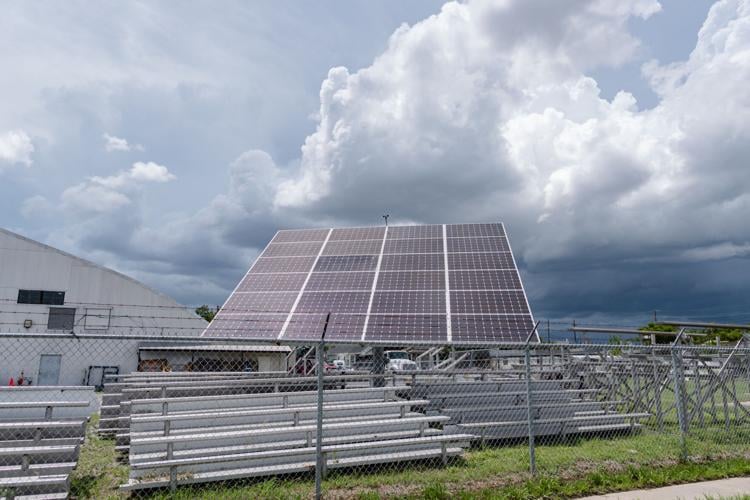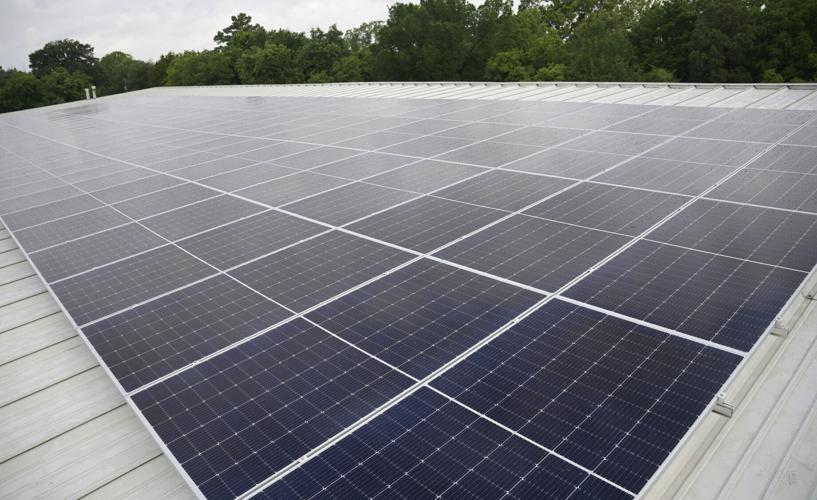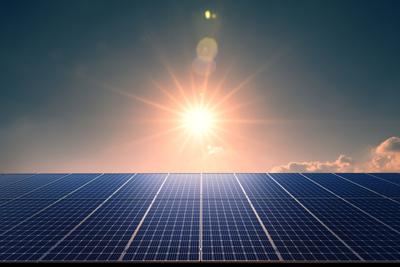Louisiana is set to lose $156 million in funding for solar energy after the Trump administration's move to eliminate the program, a blow to efforts to improve electricity reliability and affordability in a state with some of the nation's most outages, local officials say.
The U.S. Environmental Protection Agency canceled the $7 billion program on Thursday that aimed to lower utility costs for nearly a million people across the country. Louisiana's $156 million grant had already been awarded to the state, which planned to use it to expand access to renewable energy for low-income and disadvantaged families as well as help safeguard residents when storms knock out power.
For state officials involved in planning the program – called Solar for All at the federal level, and Solar for Y’all in Louisiana – the news of the cut came in the form of a social media post from EPA administrator Lee Zeldin.
Zeldin wrote on X Thursday afternoon that the agency no longer has the authority to administer or appropriate the funds “to keep this boondoggle alive” under the One Big Beautiful Bill, signed into law by President Donald Trump last month. The tax and spending law cut the $27 billion Greenhouse Gas Reduction Fund that was approved under former President Joe Biden’s signature climate legislation, the Inflation Reduction Act. The solar program came out of this larger fund.
The EPA formally notified the Louisiana Department of Energy and Natural Resources, which was awarded the solar grant in April 2024, that the program was cut Thursday evening, according to DENR spokesperson Patrick Courreges.
“Congress has made its intent clear – via a repeal of the statutory authorization and all appropriated funding for the program and the administrative burdens of implementing and overseeing the program – that the [Solar for All] program is no longer to operate,” states the termination letter from the EPA, shared with The Times-Picayune.
Courreges said that in the absence of the funding, the state will “look for other opportunities, federal or otherwise for energy resilience.”

A set of solar panels soaks up the sun's rays off St. Claude Ave. in New Orleans, Wednesday, July 17, 2024. (Photo by Matthew Perschall, The Times-Picayune)
The Center for Planning Excellence, a Baton Rouge-based organization that crafted Louisiana's Solar for All program with the state, stressed the economic benefits that the solar program would have delivered to lower-income populations.
"Louisianans are already rightfully upset about their energy bills – they are high, getting higher, and already unaffordable for many,” said CPEX President Camille Manning-Broome. “Electricity is becoming a luxury in Louisiana – while residents in states generating solar are getting money back.”
She lauded the now-terminated program as a way to address affordability and grid resilience in a state with one of the nation's highest electricity cost burdens. The federal Solar for All program guaranteed that participating low-income residents would see 20% reductions in household bills.
'A betrayal'
Around 15,000 Louisiana households were expected to benefit from the program, generating around $4.6 million in savings, Manning-Broome said.
“Louisiana people need our state leadership to protect this investment that is critical to meeting current energy needs, maintaining economic competitiveness, and powering our future,” she said.
U.S. Rep Troy Carter, D-New Orleans, said in a statement that the EPA decision “may be illegal.”
“Cutting these grants is a betrayal,” he said. “It hurts working families, our environment, and our shared future.”

U.S. Rep. Troy Carter holds up one finger, to indicate New Orleans received more federal money than any city for community projects, during the unveiling of a solar-powered Community Lighthouse at Broadmoor Community Church in New Orleans on Saturday, March 25, 2023.
House Majority Leader Steve Scalise, R-Jefferson, Gov. Jeff Landry, and U.S. Senators Bill Cassidy and John Kennedy did not respond to requests for comment.
States with Democratic leadership and other organizations across the country are signaling they will fight the EPA termination in the coming days, arguing that the president lacks the authority to rescind money appropriated by Congress and already obligated to state agencies. All of the $156 million awarded to Louisiana has been obligated.
In communication with the federal government, Louisiana's energy department had earlier stressed how the program to generate 112 megawatts of solar power would positively impact the state.
"Louisiana is in a unique position nationally to demonstrate how to reduce its high greenhouse gas inventory through the incorporation of solar energy while addressing its historic social and economic inequities," DENR said in its February 2025 workplan application to the EPA.
The program had not started rolling out yet, as the state was waiting for approval from the EPA.

A solar panel installation at Morning Star Baptist Church in Shreveport, La., Thursday, May 23, 2024. The installation is part of the Community Lighthouse Project.
Extreme risk in Louisiana
DENR's plan notes the state's frequent extreme weather, including hurricanes, tornadoes, flooding, drought, wildfires and high heat. Projected sea level rise contributes to elevated flood risk and quicker coastal land loss. On top of these risks, DENR's application describes the slew of outages that strain vulnerable residents.
"In 2021, the average customer in Louisiana experienced more than 80 hours of power outages during the year due to the weather, by far the highest in the country," the plan continues. "The disadvantaged communities of Louisiana will continue to experience the devastating impacts of hazardous weather without the means to evacuate or invest in energy resilience options."
Solar for All sought to address these concerns through a range of programs for eligible low-income homeowners and renters. This included residential solar for single-family units and small multi-family apartments, with no upfront costs and a minimum of 20% in savings. Battery storage grants were planned to complement the residential solar installations to reduce grid dependence and increase household resiliency.
This would mean that people could typically still power their homes at night, on dark days or during outages through stored solar energy.
According to the DENR application, the program also opened a new pathway for "community solar," a system designed for renters or others who can't install solar on their properties. Residents can subscribe to a share of a solar farm located elsewhere and receive a credit on their electric bills. The program anticipated supporting up to 8,600 households across the state through community solar.
New Orleans is the only Louisiana city with policies enabling community solar, and its climate office stressed how the lost funds would have significantly helped finance projects for a total of 55 megawatts of power.
"There's enough demand in the city," said Greg Nichols, who leads the Office of Resilience and Sustainability in New Orleans. "I don't want to say they're not going to happen. It just makes all of those projects harder to pencil out."





